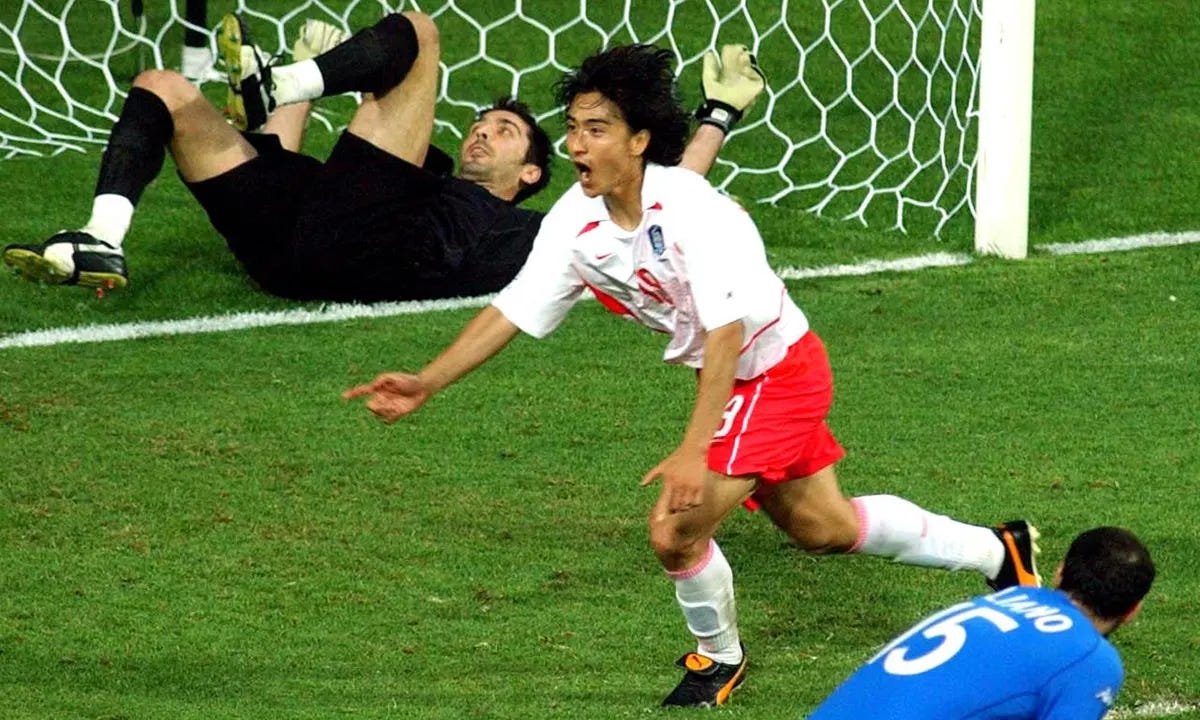Too much of a good thing...?
Is the shocktastic, upset-filled AFCON 2023 building to an anticlimax?
Of all the statistical quirks that have come to define the 2023 Africa Cup of Nations (AFCON), few are as instructive as the sheer amount of quarter-final turnover from the previous edition to this one.
A completely different last eight is unprecedented between 2021 and now; the result of a dream-like tournament given to upsets, where everything is slightly askew and no one is quite sure what time or day of the week it is. Least of all Morocco's defence: so reliable against the might of Belgium, Spain and Portugal, but in sixes and sevens as Evidence Makgopa ran through to beat Bono in the latest shock of a staggering fortnight.
The upshot of all this chaos is that only half the remaining field have actually reached AFCON glory before: the chances of a first-time champion are now very real. And while that is doubtless exciting, it sparks a concern over the quality of the spectacle going into the denouement.
Upsets raise interest levels and are exhilarating for the novelty of them, but they are the impurity at the heart of the diamond, not the diamond itself. Without them, tournaments would have a diaphanous, sterile aspect: valuable but not overly brilliant or memorable. Too many of them, and you may well have a lump of coal in your hand. When all is said and done, it is the superstar names that the neutral can identify with, and the best matches are contested by the biggest sides.
No nation ranked in Africa's top five by FIFA is left in the running, and only three of the top 10 – Nigeria, Cote d'Ivoire and Mali – still have designs on the gold. To this point, the tournament has delivered 105 goals, already in excess of the previous two editions, a marker – in addition to the twists and subplots – of its overall quality. However as the unfancied hold increasing sway, there is the real possibility of an anticlimax; like in the 2002 World Cup, when the eliminations of France, Argentina, Italy and Spain, while headline-grabbing in the moment, made for a forgettable culmination in the sweltering summer temperatures of the Far East.
AFCON 2023, played in ridiculous humidity, has many of the same elements, complete with the fact that the high-ranking slides left are all flawed and came into the tournament with little-to-no expectation relative to the norm. Both Nigeria and Mali have advanced to this point despite a major imbalance in their squad composition and question marks over their defensive sector, and the host nation were all but interred before receiving the kiss of life, and that only after coach Jean-Louis Gasset had fallen on his sword.
Solace, however, can be found in the approach and ambition of the smaller sides. Upsets and fairytale runs are typically born of grit and opportunism, but amongst this crop of minnows there is real swagger. Some of the more impressive sides in the competition – Namibia, Angola, Mauritania and Cape Verde, to name a few – have played not just with organisation, but with intent and deliberation in the final third. Not for them parked buses and sporadic sorties; there has been a real commitment to get the ball forward with numbers despite qualitative disparities.
As journalist Alasdair Howorth explains, this critical mass of shocking outcomes has not exactly come out of nowhere, and is the result of an overdue reckoning for the continent’s giants. As far as on-field approaches go, however, it is no coincidence that there are fewer European coaches than there have ever previously been at an AFCON. Indigenous coaches, steeped in the culture and expectation of their own people, and possessing the pride and sense of self thereof, are less given to overt negativity.
The result is important, true. However, whereas the hoary French/German/Portuguese expatriate of yesteryear would be inclined to wield it as a shield and condescend when criticised, the likes of Eric Sekou Chelle and Kaba Diawara are keenly aware that there are stylistic expectations as well.
The Europeans whose efforts have held up in Cote d’Ivoire – Pedro Goncalves, Hugo Broos, Sebastien Desabre – have all immersed themselves in the culture of their employer nations. (Nigeria’s Jose Peseiro is the exception, and it should come as no surprise that, of the big sides, the Super Eagles have played the most rudimentary, if extremely effective, style.)
Having already reached rarefied air playing freely, and with nothing to lose from this point, it seems unlikely that, say, Bubista would then instruct his Cape Verde to drop back and erect battlements for the task of taking on South Africa. Or that Angola, having emerged top of a group featuring Algeria and Burkina Faso, would necessarily baulk at the challenge of Nigeria, even with reigning CAF Player of the Year Victor Osimhen.
Despite the Group Stage closing out with three goalless draws, the Round of 16 saw normal service resume. Spurred by the beats of strange drums, the best AFCON of the modern era may get even headier as the sun sets in Abidjan.





Wonderful read as always